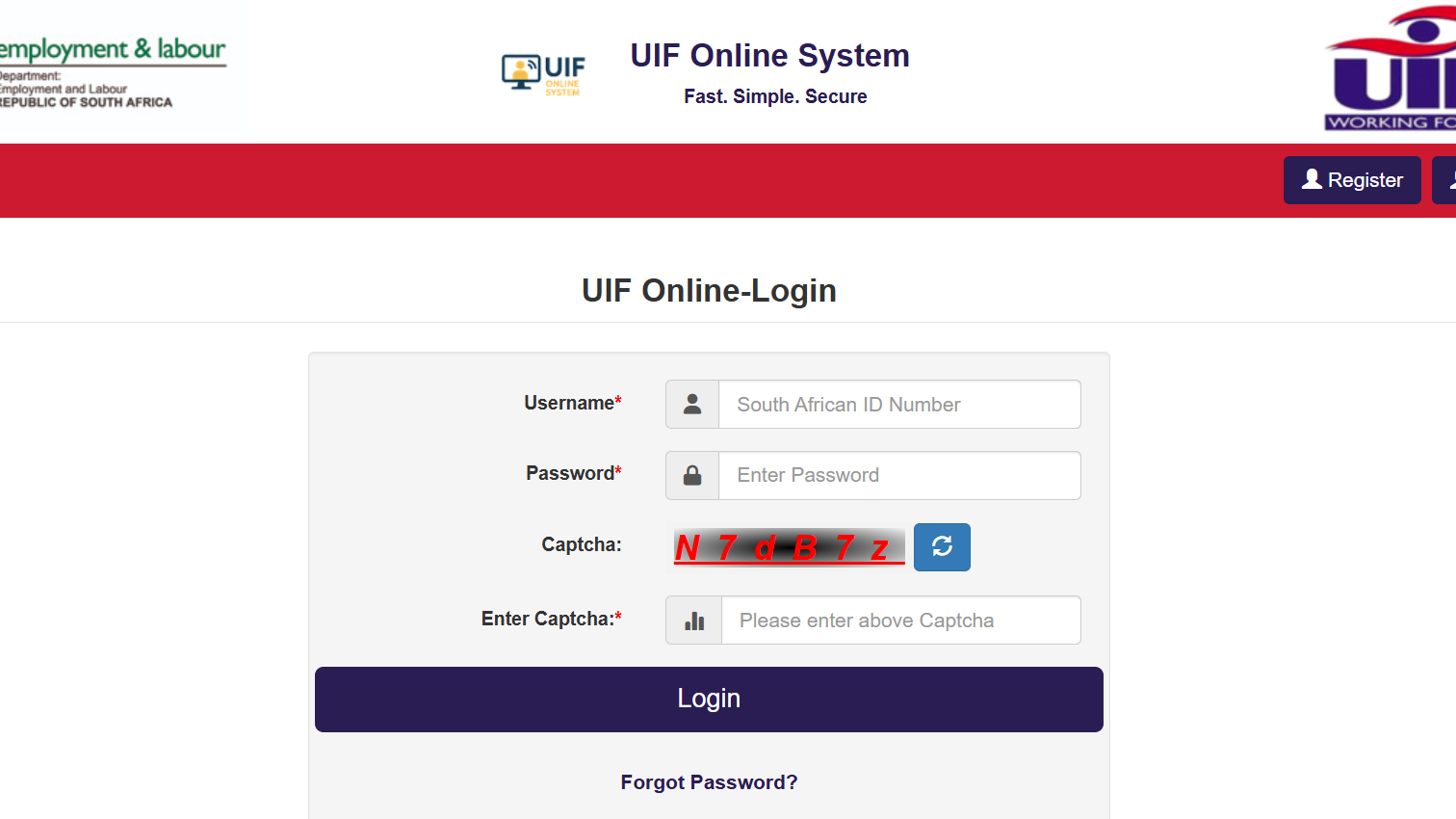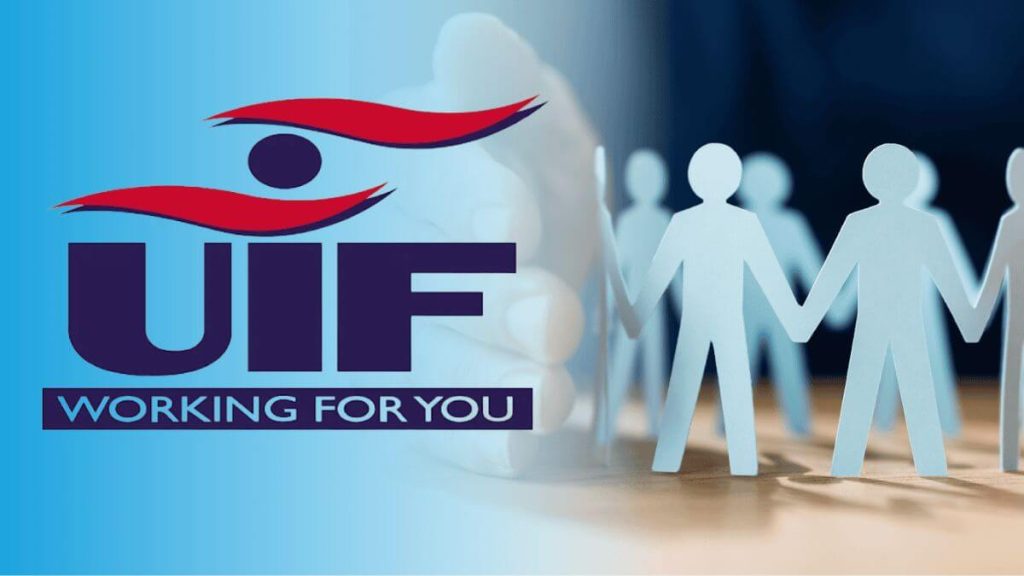Mistakes in Unemployment Insurance Fund (UIF) payments can be stressful, especially when you depend on those funds to make ends meet. Whether you’ve received less than expected or something doesn’t add up in your payment history, you’re not alone. Many South Africans encounter underpayments or miscalculations — and the good news is that these issues can be fixed.
This guide walks you through how to identify a UIF payment error, report it, and claim your remaining balance with confidence. It’s written for anyone who has received the wrong UIF payment and wants clear, step-by-step guidance to get what they’re owed.
Understanding UIF and How Payments Are Calculated
The Unemployment Insurance Fund (UIF) provides temporary financial relief to eligible contributors in South Africa — usually employees who have paid into the fund through monthly deductions. It offers support during periods of unemployment, illness, maternity leave, or adoption leave, ensuring that contributors have income protection when they need it most.
Payments are calculated based on your average earnings over the last six months before you stopped working, with a cap of R17,712 per month. You typically receive between 38% and 66% of that amount, depending on the type of benefit and your income level.
UIF benefits are not taxable, and unclaimed funds are sometimes transferred to an unclaimed benefits account, which you can still access by following the proper claim process.
However, errors can occur, resulting in overpayments or underpayments. If you’ve received the wrong UIF amount, you have the right to request a correction — and this article explains exactly how to do that.
Why You Might Receive the Wrong UIF Payment
Several factors can lead to incorrect UIF payments. Understanding these causes helps you identify the issue faster and take the right steps to resolve it.
1. Employer Contribution Errors
Your employer is responsible for submitting your monthly UIF contributions and employee information to the Department of Employment and Labour. If your employer:
- Missed contributions,
- Submitted incomplete or inaccurate data, or
- Failed to update your termination details,
your UIF claim may reflect incorrect or missing amounts.
2. Clerical or Processing Mistakes
Manual data entry, mismatched ID numbers, or incorrect salary inputs can lead to underpayment or overpayment. These errors are common during high claim periods.
3. Banking or Account Issues
If your banking details were entered incorrectly or your account was inactive during payment processing, funds might not reach you, or payments could be redirected.
4. Calculation Discrepancies
The UIF system calculates payments based on your earnings, but if those earnings were reported incorrectly or inconsistently, your payout could be too low.
5. Missing Documentation
If your UI-19 form or supporting documents (such as medical or maternity certificates) were incomplete, UIF may process your claim based on partial information.
Also check: UIF Status Check — What Each Status Means
How to Check Your UIF Payment Status Online
Before you report an error, first verify your UIF payment history and confirm whether the issue is genuine. The uFiling online portal is the best way to do this.
Step 1: Visit the uFiling Portal
Go to www.ufiling.labour.gov.za. Log in using your South African ID number and registered email address.
If you haven’t registered, you’ll need to create an account using:
- Your ID number or passport,
- Contact information, and
- Employment history details.

Step 2: Check Your Claim and Payment History
Once logged in:
- Select “Claim History” or “Benefit Payments.”
- Review payment dates, amounts received, and remaining balances.
- Compare these with your payslips or previous claim notifications.
This verification helps confirm whether you’ve been underpaid and how much may still be owed to you.
Step 3: Save or Print the Records
Download or screenshot your UIF payment records. You’ll need them when reporting the issue to the Department of Labour.
If you don’t have online access, visit your nearest Labour Centre for assistance. Officials can help you check your payment records manually.
Documents You’ll Need Before Lodging a UIF Dispute
To speed up the correction process, gather all required documents before visiting a Labour Centre or submitting an online query.
Here’s what you’ll need:
- Valid South African ID or passport
- UI-19 form (completed by your former employer, stating your employment and termination details)
- Bank statements showing UIF deposits
- Proof of contributions (recent payslips or UI-2/UI-19 forms)
- White UIF card issued when your claim was first registered
- Medical certificate or UI-86/UI-87 form (for illness or maternity claims)
Having complete documentation helps the UIF officer verify your contributions and process your correction faster.
How to Report a UIF Underpayment or Error
Once you’ve confirmed an incorrect payment, the next step is to report it and lodge a formal correction request.
Step 1: Visit Your Nearest Labour Centre
Locate your closest Department of Employment and Labour office via www.labour.gov.za.
Take all your documents and explain the payment discrepancy clearly to the UIF officer. You may need to fill out a correction or dispute form, depending on the situation.
If your claim was partially refused, you can submit a UI-21 appeal form. Be sure to frame your issue as a “payment correction” rather than a new claim.
Step 2: Employer Record Amendments
If the error is linked to missing or incorrect employer records:
- Your employer must log in to the uFiling portal and correct the UI-19 details.
- This amendment is automatically synced with UIF’s system for recalculation.
Step 3: Overpayment Situations
If you were accidentally overpaid, UIF will recalculate and may request repayment of the excess. Don’t ignore this notice — failure to resolve overpayments can lead to the suspension of future claims.
You’ll still receive your correct entitlement after adjustments are made.
Step-by-Step Guide to Claiming Your Remaining UIF Balance
If you’ve been underpaid, follow this process to reclaim the outstanding balance owed to you:
Step 1: Submit Supporting Evidence
Provide all documents — ID, bank statement, UI-19 form, proof of contributions, and the UIF card — to the claims officer at your Labour Centre.
They’ll verify your record, correct any errors, and recalculate your entitlement.
If your unclaimed funds have been transferred to the Unclaimed Benefits Account, the officer will help you apply to retrieve them using a simple application form and ID proof.
Step 2: Sign the Unemployment Register
You’ll be required to sign the unemployment register every four weeks to remain eligible. Bring your white UIF card each time.
Step 3: Track Your Claim
You can check progress through:
- The uFiling portal, or
- The UIF helpline (0800 030 007).
Correction requests typically take 7–10 working days for verification, but full resolution can take up to eight weeks.
Step 4: Receive Corrected Payment
Once approved, your adjusted UIF amount is deposited directly into your South African bank account (the account must be in your name).
You’ll receive an SMS or payment slip confirmation showing your updated balance and payment details.
Read more: How to Submit UIF Documents Online via uFiling in 2026
Tips for Faster UIF Correction and Processing
Speeding up your UIF correction process requires organisation and clear communication.
Here are key tips to help you get paid sooner:
- Act Quickly: Don’t wait too long to report an issue. UIF gives you six months from the end of your benefit period to claim any unclaimed or incorrect balance.
- Check Your Details Carefully: Ensure your bank account, ID, and employer information match across all forms.
- Stay Polite and Professional: UIF officers handle hundreds of cases daily — clear, respectful communication often results in quicker responses.
- Keep a Record: Note the dates, names, and contact details of officials you speak with. Keep copies of all forms and emails.
- Follow Up Regularly: Track your claim progress weekly through uFiling or by calling the UIF helpline.
- Stay Compliant: Continue job-seeking activities and report new employment, as UIF may suspend benefits if you’re re-employed and still claiming.
- Get Employer Cooperation: If unpaid contributions caused the underpayment, your employer must submit arrears to SARS (via the EMP201 form) before UIF can pay your full amount.
Common Mistakes That Delay UIF Corrections
Avoid these common pitfalls that can extend the resolution process:
- Submitting incomplete forms (missing signatures or pages).
- Providing incorrect banking details or using someone else’s account.
- Failing to respond to UIF follow-up emails or calls.
- Not checking your claim status before lodging a dispute.
- Misplacing your UIF card or claim number, which can delay verification.
Being proactive and thorough from the start reduces the chances of delays or rejections.
When to Escalate Your UIF Claim
If your issue remains unresolved after 30 working days or you feel your claim is being ignored, it’s time to escalate.
1. UIF Provincial Appeals Committee
You can submit your complaint or appeal to the Provincial Appeals Committee, which reviews unresolved UIF cases. Attach copies of your documents and correspondence.
2. CCMA (Commission for Conciliation, Mediation and Arbitration)
The CCMA offers free advice and can mediate disputes involving UIF payments or employer contributions.
Visit www.ccma.org.za or call 0861 16 16 16 for guidance.
3. The Public Protector
If you believe your case has been mishandled, you can approach the Public Protector’s Office at www.pprotect.org.
4. Presidential Hotline
You can also contact the Presidential Hotline (17737) for further escalation if normal channels fail.
5. Private Assistance Services
Companies such as UIF Connect or UIF Help can assist with paperwork for a fee. However, the official UIF process is completely free through the Department of Labour.
Frequently Asked Questions
1. How long does it take to correct a UIF underpayment?
Minor corrections usually take 7–10 working days, but full payment resolution may take up to eight weeks depending on verification needs.
2. Can I claim my remaining UIF balance online?
Yes, through uFiling.labour.gov.za. You can check claim statuses, payment history, and raise service requests online.
3. What if I was overpaid by UIF?
You must refund the excess amount. UIF will issue a written notice explaining how to make the repayment to avoid suspension of future benefits.
4. What happens if I don’t claim my UIF balance?
Unclaimed funds may be moved to the Unclaimed Benefits Account, but you can still recover them by submitting proof of identity and your original claim documents.
5. Can I get UIF while working part-time?
If you earn less than your previous UIF-registered salary, you might still qualify for reduced benefits. Always report part-time income to avoid suspension.
6. How do I know if my employer has been paying my UIF contributions?
You can check your contribution history by logging into uFiling.labour.gov.za. If some months are missing, contact your former employer to update their UIF records. The Department of Labour can also verify whether contributions were made under your name.
7. What should I do if my employer refuses to fix UIF contribution errors?
If your employer ignores UIF correction requests or fails to pay outstanding contributions, report the issue to the Department of Employment and Labour. They can investigate and compel the employer to settle arrears with SARS before your claim can be processed.
8. Can someone else claim my UIF on my behalf?
Yes, but only if they are legally authorised — such as a family member with a power of attorney, or a registered legal representative. They’ll need your ID copy, signed consent, and all supporting documents to act on your behalf.
9. Is there a deadline to dispute an incorrect UIF payment?
Yes. You have six months from the end of your benefit period to dispute an incorrect or incomplete UIF payment. Claims made after this period may require special approval and can take longer to process.
10. Who can I contact if I can’t get through to the UIF helpline?
If calls to 0800 030 007 go unanswered, try emailing uifcomplaints@labour.gov.za or visiting your nearest Labour Centre in person. You can also use the Presidential Hotline (17737) for unresolved UIF complaints or delayed payments.
Conclusion
Receiving the wrong UIF payment can be worrying, but it’s a fixable problem. The UIF allows you to dispute underpayments, correct contribution errors, and claim your full entitlement — as long as you act quickly, provide proper documentation, and follow the official channels.
Stay proactive, keep copies of every form, and maintain communication with your nearest Labour Centre or the UIF helpline. Most payment corrections are successfully resolved within weeks, ensuring you get the financial relief you rightfully deserve.










